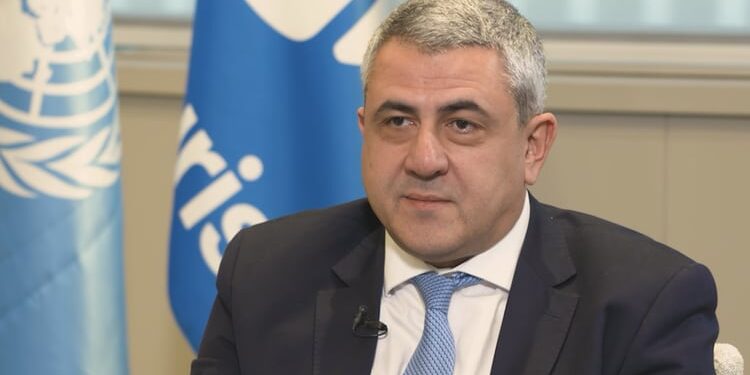Zurab Pololikashvili, Secretary-General of UN Tourism
When I took office in 2018, I found an organization rich in history but with little vitality. What was then known as the UNWTO was respected in institutional circles, yes, but it was not a key player. It lacked ambition, real on-the-ground impact, and a clear vision of how tourism could become a tool for development. It was time to move past rhetoric and embrace action.
From the outset, I was determined that tourism could no longer be seen merely as an economic activity. It is, and must be, a powerful tool for inclusion, innovation, sustainability and peace. Guided by that vision, we reimagined the organization and shaped a new UN Tourism: more agile, more global, closer to its members and, above all, more relevant and useful to people.
Over these past years, we have worked tirelessly. We established regional offices in Saudi Arabia and Brazil, strengthened existing ones, and launched thematic offices such as the Silk Road Office in Uzbekistan and the Innovation Office in Morocco. We launched the Tourism Law Observatory in Uruguay and created the first global tourism investment network, which now counts on more than 200 stakeholders from across our broad sector.
We also created pioneering departments within the United Nations system, most notably those focused on Innovation, Education, and Investments, and developed 21 tourism investment guides, with dozens more on the way. We have brought tourism into classrooms, from high school to PhD level, through partnerships with universities in Europe, Asia, and the Americas. And thanks to our Online Academy, nearly 40,000 students now enjoy access to specialized tourism education.
The pandemic tested us, and we responded by leading global coordination through the Tourism Crisis Committee. At a time of great uncertainty, we delivered the International Code for the Protection of Tourists (ICPT), a framework aimed at strengthening travelers’ rights in times of crisis, such as health emergencies or armed conflicts. This pioneering legal instrument provides clarity, security, and confidence to both tourists and states.
We also focused on those who had so often been left behind: rural communities, women, and youth. Our “Best Tourism Villages” initiative has helped over 250 villages in 59 countries grow as destinations without losing what makes them special. Gender equity became a cross-cutting priority, with forums, training sessions, and mentorship networks for women leaders in the sector. And we launched the America-Africa Cooperation Summit, with two editions already held in the Dominican Republic and Zambia, as a tool for cooperation and integration that will be replicated by other continents and cultures.
I must also highlight our progress in sustainability. We achieved the unanimous adoption, by all UN Member States, of the Statistical Framework for Measuring the Sustainability of Tourism. And we secured a declaration by the UN General Assembly of 2027 as the International Year of Sustainable and Resilient Tourism. These milestones are not symbolic—they are tangible commitments to making tourism an active part of the solution to climate change.
In addition, we strengthened our commitment to transparency through external auditing mechanisms under UN standards. Just a few years ago, there was no systematic external review by Member States or oversight by independent bodies. Today, that has changed: accountability is a central pillar of the new UN Tourism.
But there is still much to be done. For the 2026–2029 period, my vision is clear. We want an even more influential UN Tourism, with a new investment fund for Africa, a Tourism Investment Intelligence Center, more technical academies in developing countries, and greater integration with global forums on key issues like cybersecurity, climate change, air connectivity, and digital transformation. We aim to certify destinations, develop tourism competitiveness rankings, and launch the first World Congress on Transport and Tourism in collaboration with ICAO and IATA.
Artificial Intelligence will be a key ally in the transformation of tourism. It will enable us to analyze data in real time to make smarter decisions, personalize the travel experience, anticipate risks, and design more effective public policies. From managing tourist flows to promoting emerging destinations, AI will mark a turning point in how we conceive, plan, and experience tourism. At UN Tourism, we are already developing pilot projects that integrate AI with sustainability, accessibility, and resilience. The tourism of tomorrow will be smarter, more human, and more connected than ever before.
Finally, as we advance together, I will make sure that UN Tourism never loses sight of our essential belief: well-managed tourism is a force for peace. It unites cultures, breaks down prejudices, and fosters understanding among peoples. In a fragmented world, tourism can be the bridge that brings us closer together.
Today, UN Tourism not only promotes tourism. It leads it. It transforms it. It puts it at the service of the planet and of people. And this journey is just beginning.







